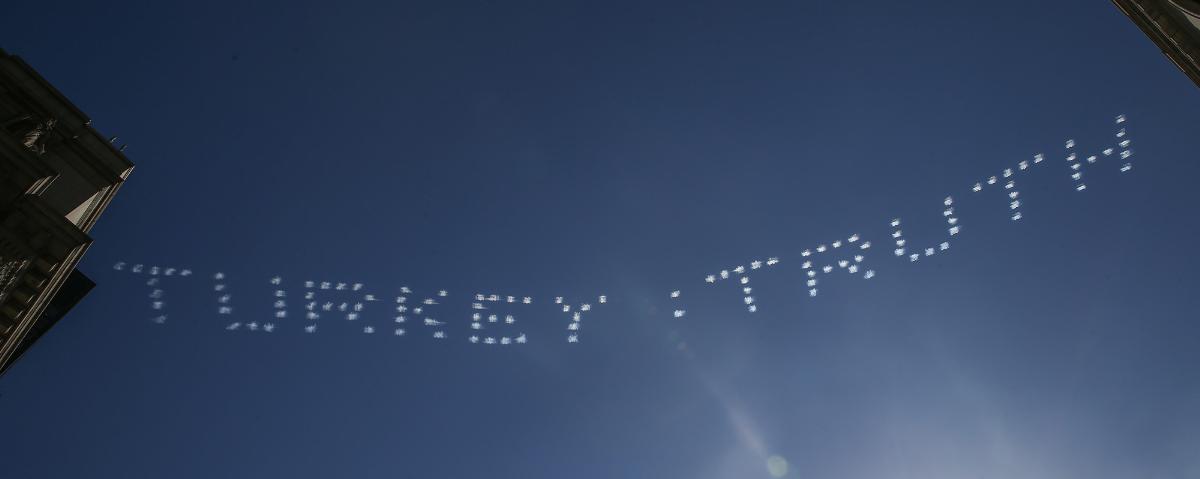The Turkish systematic extermination of its minority Armenian subjects from their historic homeland in the territory constituting present-day Turkey between 1915-1923 can be defined with one word: genocide. Is this by now an incontestable statement? Over the last century, the surviving Armenian communities, spread across the globe as part of one of the world’s largest diasporas, have struggled to gain official recognition for the genocide. Along the way, Turkish nationalist organizations have fought recognition. Instead these organizations push for reconciliation, which merely serves to perpetuate denialist propaganda as it distracts from Turkey’s role in committing genocide.
Last year, with the numerous centennial events commemorating the genocide, the global Armenian community made great strides in gaining recognition. Throughout the year, several countries officially recognized the Armenian Genocide. In April, dozens of Representatives in the United States Congress penned a letter urging President Obama to condemn the events beginning in 1915 as genocide. Later in the same month, Pope Francis issued a statement calling the deaths of 1.5 Armenians as the first genocide of the twentieth century. The centennial was commemorated in the Twin Cities in a series of events, including an interfaith service at the Cathedral of St. Paul and a service at St. Sahag, St. Paul’s Armenian Church.

While the world is increasingly coming to recognize the massacres of 1915-1923 as genocide, Turkey is not. A poll of Turkish citizens last year found that less than 10% want their government to recognize the genocide. Seemingly caught off guard by the massive display of support for recognition, Turkey and Turkish nationalist groups made the 101st anniversary the target of denialist rhetoric. On April 20th, the denialist website, FactCheckArmenia, contracted with a skywriting company to spread its message across the skies of New York City. The same day, the website also took out a full page advertisement in the Wall Street Journal. Earlier in the month, the site had billboards installed in Boston. This is made especially disheartening because the Boston area is home to the second largest Armenian community in the U.S.
Not surprisingly, sites like FactCheckArmenia are intentionally vague about their founding. It’s likely the organization receives at least some support from the Turkish government. FactCheckArmenia is just one of many well-funded organizations established to curb recognition of the Armenian Genocide and the efforts are extensive. Last week, it was revealed that the deputy mayor of a New Jersey city actively lobbies to deny the genocide. Former Congressmen Dennis Hastert and Dick Gephardt have long been accused of lobbying on behalf of genocide denial. The University of Minnesota and the Center for Holocaust and Genocide has also been the target of denialist efforts, when both were sued in 2011 by the Turkish Coalition of America. The case was dismissed.
Efforts to deny the Armenian Genocide go beyond ignoring historical facts. Denying genocide is in effect, leaving a wound unhealed for the millions of victims and their relatives. Genocide denial is the last stage of genocide, as the victims are insulted, invisibilized and ultimately forgotten. Denial not only perpetuates in time the past genocide – “Even the dead will not be safe from the enemy if he wins,” wrote the philosopher Walter Benjamin. It is also is a dreadful sign of genocides to come.
Joe Eggers is a graduate student at the University of Minnesota, focusing his research on cultural genocide and indigenous communities. His thesis project explores discrepancies between the legal definition and Lemkin’s concept of genocide through analysis of American government assimilation policies towards Native Nations.

Comments